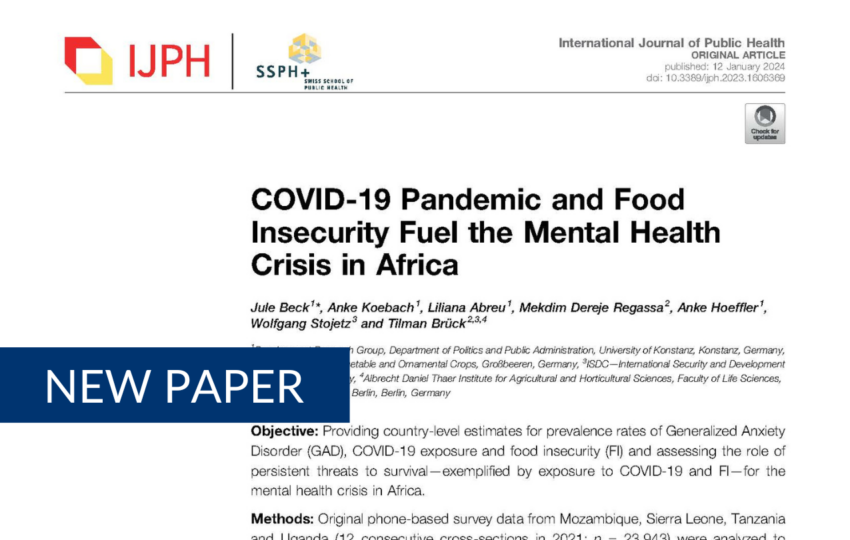New ISDC research delves into the intersection of the COVID-19 pandemic and food insecurity, uncovering alarming insights into their collective impact on mental health across Mozambique, Sierra Leone, Tanzania, and Uganda. The study, titled “COVID-19 Pandemic and Food Insecurity Fuel the Mental Health Crisis in Africa” was conducted cooperatively with researchers from ISDC, the University of Konstanz’ Development Research Group, the Leibniz Institute of Vegetable and Ornamental Crops (IGZ), and the Humboldt-University of Berlin’s Albrecht Daniel Thaer Institute for Agricultural and Horticultural Sciences.
Key Insights:
Prevalence Rates: In 2021, the study found an overall prevalence of Generalized Anxiety Disorder (GAD) at 23.3%. Strikingly, Mozambique reported a significantly higher rate at 40.2%, emphasizing the urgency of addressing mental health challenges in the region.
Independent Predictors: The research underscores the significance of both COVID-19 exposure and food insecurity as independent predictors of GAD. Notably, the study reveals that the influence of food insecurity on GAD surpasses that of COVID-19 exposure.
Persistent Threats: By examining the ongoing threats to survival, particularly through the lens of COVID-19 and food insecurity, the research highlights their substantial role in contributing to the prevailing mental health crisis.
Implications and Recommendations:
These findings stress the critical need for comprehensive mental health programs, with a focus on reducing violence and strengthening social support in African communities. Notably, the research shows policymakers should prioritize addressing food insecurity as a key driver of Generalized Anxiety Disorder, even amidst the challenges posed by the ongoing pandemic.
We invite you to explore the full details of this research article, available in the International Journal of Public Health (IJPH). For those seeking a deeper understanding of the intricate interplay between socio-economic factors and mental health challenges, this publication offers valuable insights.



